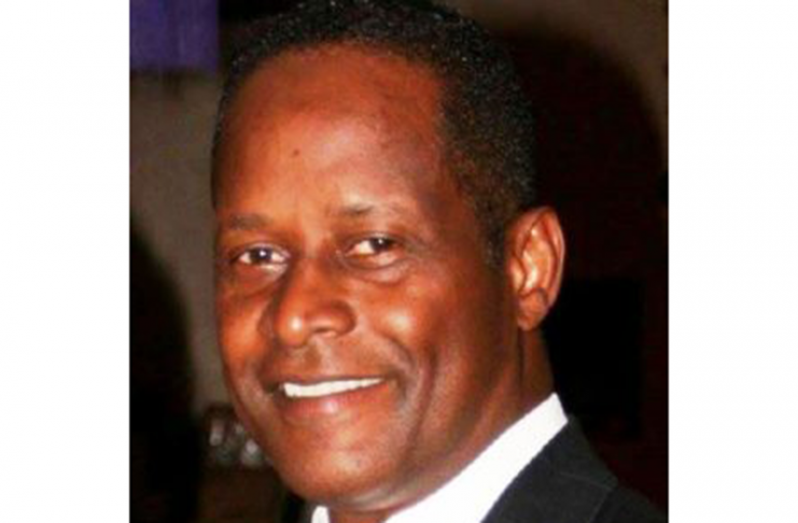THROUGH revenues from the oil and gas sector, Guyana will have no financial constraints to address issues such as the brain-drain, ease of doing business and corruption.
This is the position of Founder and President of the United Guyanese Diaspora Global Network Corp (UGDGN), Wayne Forde, in a recent letter.
Forde holds a Master’s Degree in Public Policy and is currently a doctoral candidate in Business Administration with a specialisation in Energy Management.
In his correspondence, he noted the differences between Guyana and Singapore, a 274 square-mile country, which achieved middle- income status and a high standard of living without depending on its natural resources.
The UGDGN President said that Guyana, with its 83,000 square miles of land space and numerous resources, can rise to even higher heights if certain critical reforms are pursued; these include improving the ease of doing business. Economies that score well on Doing Business tend to benefit from higher levels of entrepreneurial activity and lower levels of corruption.
The World Bank’s Doing Business 2020 ranks Guyana at 134th out of 190 countries surveyed, also noting that no Latin American or Caribbean country ranks in the top 50 regarding the ease of doing business.
“Singapore made starting a business easier by reducing the time and number of procedures to start a business by simplifying the online start-up process and abolishing the corporate seals,” Forde compared.
“Exporting and importing is easier in Singapore because of improved infrastructure and electronic equipment. Besides, enforcing contracts was made easier by introducing a consolidated law on voluntary mediation. Dealing with construction permits in Singapore became easier by streamlining procedures and improving the online one-stop-shop.”
Meanwhile, the UGDGN President noted that Guyana has suffered from one of the highest emigration rates in the world and, as an oil-producing nation, this can hamper the country’s aim for as little as possible a reliance on foreign labour.
He presented statistics which revealed that Guyana’s inadequately educated workforce stems from its high emigration rate of 83 percent of tertiary-educated nationals and a net migration of negative 3.2. percent, which creates deficiencies in institutions and impedes sustained progress.
He recommended a structured policy for engagement with the Guyanese diaspora to ensure that benefits return to the people of Guyana.
“This brain-drain syndrome forces Guyana to depend heavily on foreign labour, especially in the new oil and gas sector. At the same time, Singapore is restructuring its economy to depend less on foreign workers. With the new oil and gas sector now online, Guyana’s dependence on foreign labour increases significantly. Without a structured mechanism and a policy to engage the Guyanese diaspora effectively, Guyana will continue to depend on non-Guyanese to fill many skilled-labour gaps and shore up institutional capacity,” he cautioned.
Guyana’s Local Content Policy which was recently launched mandates a “policy of first consideration”; this means that if a Guyanese, supplier, operator or primary contractor does not meet the criteria to be given first preference in all procurement opportunities, only then should citizens of CARICOM be considered.
Understanding that the sector requires a significant input of highly specialised skills and services, materials, products and equipment —- many of which are unlikely to be immediately and competitively sourced or manufactured in Guyana — the policy takes into consideration a needed period of development.
Even before looking to non-Guyanese, the government has been encouraging oil-and-gas professionals within the diaspora to return home to fill job openings as the government works to train citizens and to assist with scholarships to help further education in the field.
Already, several Guyanese have been returning home to embark on business ventures, while some others simply see the prospect of a brighter future in the country.
In his letter, Forde also recommended that the leaders of Guyana consider, improvements in the areas of entrepreneurial financial support, government policies, government entrepreneurship programmes in education and training, research and development transfer.
Some of the means through which such efforts are ongoing are: the Small Business Bureau (SBB); Guyana Office for Investment (GO-Invest); the Hinterland Employment Youth Service (HEYS); the Linden Enterprise Network (LEN); Micro and Small-Enterprise Development (MSED); Sustainable Livelihoods and Entrepreneurial Development (SLED); Women of Worth (WOW) and People of Worth Entrepreneurial Resources (POWER).
“Guyana can learn a lot from the Singaporean model. Without extracting one drop of oil or exploiting natural resources, Singapore soared to become a prosperous and successful country. Even with the anticipated oil revenues, Guyana has a lot of catching up to do after 53 years of independence,” Forde stated.
“With oil and gas revenues, Guyana will have no financial constraints to make critical reforms, and bolster and develop capabilities for prosperity at an accelerated rate.”



.jpg)











